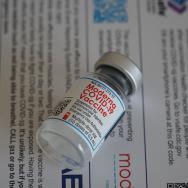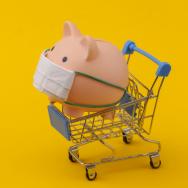Public health authorities worldwide agree that increasing vaccination rates is crucial to beating the COVID-19 pandemic. Yet even wealthy countries with optimal access to vaccines have had a hard time getting more than 70 percent of their populations inoculated.
Would paying people help? Both corporations and governments have tried different iterations of this idea, from Krispy Kreme’s U.S. offer of a free doughnut with proof of vaccination to other offers of $100 gift cards, free tickets to sporting events, $1 million lotteries, and full college scholarships.

It turns out that paying people even a modest financial reward can in fact help motivate them to get the shot, according to a team of researchers—including Prof. Devin G. Pope of the Chicago Booth School of Business—who performed a randomized controlled trial this past summer to measure the effects of payment on vaccination rates. The results of the study were recently published in the journal Science.
Conducted in Sweden from May to July 2021, the study recruited close to 8,300 participants aged 18–49 from an online panel created by survey company Norstat. Each of the participants received a survey as soon as their age cohort was eligible for vaccination. The survey randomized participants into several groups including a control group, one offered an incentive, and others subject to various treatments including behavioral “nudges.”
The incentives group was offered 200 Swedish kronor, or about $24, if they got vaccinated within 30 days of gaining eligibility. The researchers used data from administrative records to confirm whether participants were vaccinated.
They found that the cash offers increased vaccination rates by 4 percentage points, to 76 percent for those in the incentives group compared with 72 percent in the control group. The 72 percent baseline was similar to rates in other countries in the European Union, according to the researchers, so the findings suggest that a small incentive can work even in countries with high vaccination rates.
One limitation they acknowledged is that they tested only one amount, while companies and governments have discussed payments ranging from less than $1 in Philadelphia, to €25 (about $30) in Serbia, to $100 in New York.
The research demonstrates that while people with higher socioeconomic and educational status were most likely to get vaccinated, the monetary incentives increased inoculation rates among all participants in the incentives group, regardless of background.
The findings suggest that a small incentive can work even in countries with high vaccination rates.
The trial also studied the effect of nudges on participants in three of the test groups. For example, subjects in one group were asked to make a list of people in their lives who would benefit from the participant being vaccinated, and in another, to take a quiz detailing the benefits of COVID-19 vaccines. The researchers found that such nudges increased participants’ intention to get vaccinated but had no meaningful effect on actual vaccination rates.
The researchers acknowledged that paying people to get vaccinated could have potential downsides, such as giving the impression that vaccines are not desirable or lessening the motivation to be inoculated for the public good rather than for financial benefit. But the study does suggest that guaranteed incentives can indeed increase vaccination rates.
Citation: "Monetary incentives increase COVID-19 vaccinations," Campos-Mercade, Meier, Schneider, et al. Science, Oct. 7, 2021.
—Adapted from a story first published by Chicago Booth Review.








